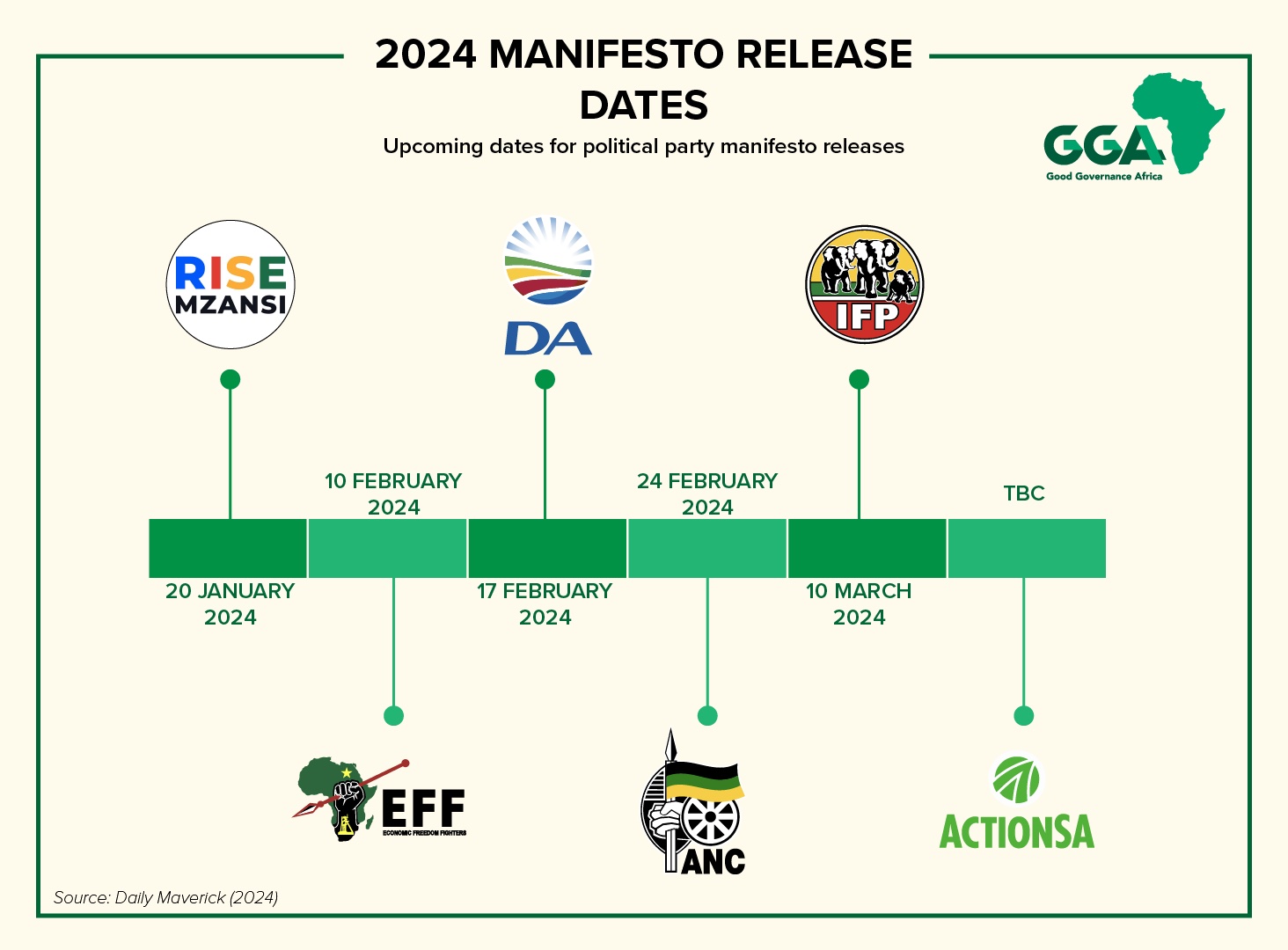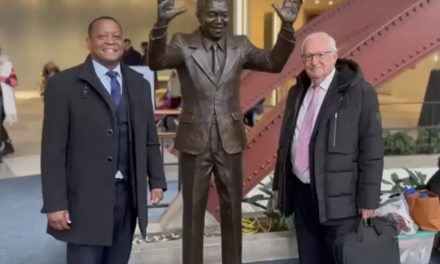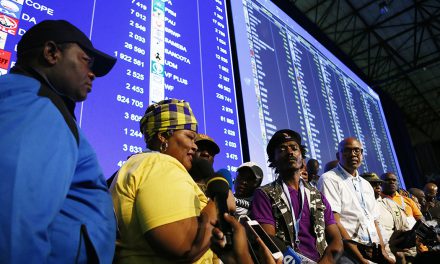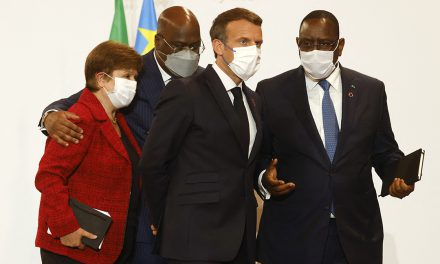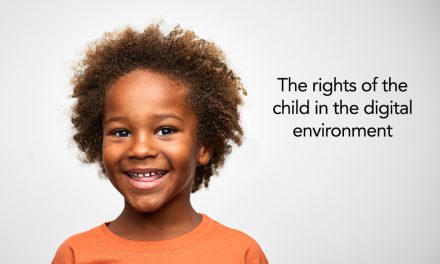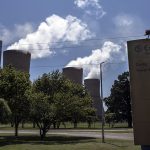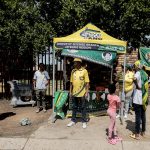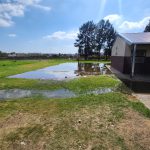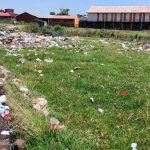By 17 April 2024:
List of voting stations:
The IEC released the final list of voting stations on 15 April 2024.
This election will be the first time that voters are required to notify the IEC in advance if they don’t plan to vote at the voting station they are registered at.
Previously, voters could apply to vote at a different voting station on the day of the election, however this system was scrapped leading into the 2024 general election.
Voters who are not able to or wont be in their registered district have until 17 May 2024 to submit their intent to vote at a different station.
The IEC can be notified online or in person at the local IEC office.
Finalisation of candidate lists:
The IEC published the final lists of candidates who will be contesting the national and provincial election.
There are 70 political parties, and 11 independent candidates contesting according to the candidates list.
Despite this, there are still some outstanding challenges to the candidate list which could delay the printing of ballots.
6 judgements have been reserved by the electoral court, which the IEC expects to be clarified within the week of 15 April 2024, allowing the IEC to begin printing the official ballots.
Party alliances in Western Cape:
The Patriotic Alliance (PA) announced on 16 April 2024, that it has garnered the support of several smaller parties in the Western Cape.
5 political parties mostly from rural areas in the Western Cape have chosen to put their support behind the PA instead of contesting the general election themselves.
This has contributed to the shift in Western Cape politics as some experts have indicated that there is a possibility that the Democratic Alliance may loose its majority within the province.
As of 10 April 2024:
Candidates nomination list:
The IEC released a briefing on 28 March 2024, noting the objections that were made during the candidate nomination objection process.
In total the IEC received 82 objections relating to candidates nominated by 21 political parties across the national and provisional nomination lists.
Relevant stakeholders have until 2 April 2024 to appeal any decision made by the IEC regarding the candidate nomination lists.
Former president Jacob Zuma barred from the MK party list:
On 28 March 2024, the IEC upheld an objection to have former president Jacob Zuma on the candidates list for the MK party in the upcoming general elections.
The IEC argued that the former president did not qualify for the list of candidates because he had been jailed for more than 12 months.
The electoral court decided on the outcome of the MK’s appeal on 9 April 2024.
Former president Jacob Zuma won the appeal to overturn the IEC decision. However, the electoral court has not given its reasoning behind the decision, which the IEC hopes will shed light on the decision taken by the court.
National Assembly Speaker has resigned:
Nosiviwe Mapisa-Nqakula, who is the Speaker of the National Assembly, resigned as Speaker and as a Member of Parliament on 3 April 2024. This followed alleged bribes that she solicited as Defence Minister between 2017 and 2019.
Mapisa-Nqakula put forward an application to stop her pending arrest over the weekend, which was denied by the court.
Subsequently, she handed herself over to police on 4 April 2024 and appeared in court the same day. Mapisa-Nqakula faces 12 charges of corruption and 1 charge of money laundering.
The former Speaker was granted bail of R50,000, with the case being postponed to 4 June 2024.
By 27 March 2024:
IEC candidates list:
- The deadline for political parties to revise their candidate lists passed on Monday 25 March 2024.
- This is one of the final steps in the nomination process, which gives political parties an opportunity to revise their lists and to inform the commission if the candidates they nominated were on more than one party’s nomination list or if they were also nominated as an independent candidate.
- IEC noted in a statement on Monday evening that 14 662 candidates have been nominated to contest the general election across the national assembly and provincial legislatures.
- Gauteng will have the biggest regional election ballot with 40 political parties and 2 independent candidates contesting for the compensatory seats in the national assembly, while for provincial legislature, Gauteng will have 42 political parties contesting with 2 independent candidates.
- Additionally, 42 candidates had appeared on more than one party nomination list across 39 political parties. While 1 candidate was nominated as an independent and on a party list according to the IEC.
ANC/MK candidate nomination list leaks :
- Shortly after the candidate nominations closed, on 8 March 2024, the IEC reported the nomination lists submitted by the ANC and MK Parties were leaked.
- The IEC’s Deputy Chief Electoral Officer, Mawethu Mosery, said in an interview that an IEC official has been dismissed, following an internal investigation into the matter. The IEC is also looking into measures to make sure this does not happen again.
- The ANC has noted this leak affects not just the electoral process but also contains personal information about candidates which has implications for the Protection of Personal Information Act (POPIA).
- The final candidate nomination list is scheduled to be released on 10 April 2024, following various stages of verification of the candidate nomination lists and objections.
ActionSA manifesto launch:
- ActionSA released their 2024 election manifesto on 23 March 2024, Boksburg Johannesburg. This will be the first time that they contest a general election, having previously been established before the 2021 local election.
MK contesting elections:
- On 19 March 2024, the ANC took the MK party to the electoral court to appeal the registration of the MK as a political party.
- The court, which heard arguments from both sides, gave its judgement on 26 March 2024.
- The court dismissed the case, concluding that the ANC had two opportunities to challenge the registration when the MK party first registered last year.
By 22 March 2024
Candidate nominations list:
- The IEC is expected to release a provisional list of nominated candidates on 26 and 27 March.
Manifesto launches:
- The GOOD party launched its manifesto on Saturday, 16 March.
Electoral process:
- The IEC dismissed an employee this past week, following the leak of candidate lists of the African National Congress (ANC) and uMkhonto weSizwe (MK) parties.
- On 7 March, the Democratic Alliance (DA) submitted an appeal to Western governments requesting observer support against domestic and foreign interference in the 29 May National and Provincial Elections (NPE). This follows a similar appeal made by 11 parties as part of the Multi-Party Charter (MPC) submitted to the foreign ministries of the European Union(EU), G7 nations (the USA, the UK, Germany, France, Japan, Italy, and Canada) as well as Norway, Sweden, Finland and Denmark in early February.
- The move has been criticised as an attempt to undermine the IEC and South Africa’s electoral process.
- The IEC announced recently that it has granted observer status to 52 organisations, both international and local, with the majority being local. It has also stated that more international organisations are expected to request accreditation closer to the election date.
By 12 March 2024
Candidate nominations list:
- The deadline for parties and independent candidates to submit their candidate nomination details to participate in the upcoming National and Provincial Elections (NPE) closed on, Friday 8 March 2024 at 17h00.
- The IEC reports that 115 parties have made submissions to contest seats in the National Assembly.
- 101 unrepresented parties intend to contest for seats in the National Assembly while all 14 parties presently holding seats in the National Assembly have made their submissions to contest seats in the National Assembly and at least one region.
- 16 submissions have been received from independent candidates, that is candidates not nominated by any political party.
Manifesto launches:
- This past weekend, the Inkatha Freedom Party (IFP) launched their manifesto.
Other:
- The IEC notes an incident in which political parties the African National Congress (ANC) and uMkhonto weSizwe (MK), candidate lists were disclosed in an unauthorised manner and have since directed an enquiry to establish further details.
By 8 March 2024:
Party Funding’s Third Quarter Disclosure Report:
- On 29 February 2024, the IEC released the Party Funding Third Quarter Disclosure Report for the 2023-24 Financial Year.
- As outlined in the Political Party Funding Act of 2018, all political parties must disclose private donations received by the party above R100 000 to the electoral commission each quarter.
- The third quarter report comes shortly after President Cyril Ramaphosa proclaimed the 2024 general election and covers the period from 1 October to 31 December 2023.
- The combined total of all declared donations (those over R100 000) for the third quarter was R59 052 065.82.
Candidate nominations list:
- Political parties have until Friday, 8 March 2024, to submit their candidate nomination lists.
- These lists are an important part of ensuring transparency within the electoral process as it allows voters to get an idea of who will represent the party in the National Assembly and Provincial Legislature should the party get enough votes.
- Once the lists have been submitted, the IEC will conduct a verification process to ensure political parties have submitted all relevant documentation.
- A provisional list of the nominations will be available for the public to inspect on the 26 and 27 March 2024.
ANC candidate nomination list:
- There has been a lot of attention surrounding the ANC’s candidate nomination list over the past week.
- This focus is in part due to the ANC integrity commissions report which recommended that those implicated in the Zondo State Capture Commission should not be put on the candidates nomination list.
- While the list will only be available later in the month, some analysts suggest it will play an important role in determining the ANC’s stance on corruption and holding its own members more accountable.
Manifesto launches:
- Several political parties launched their manifestos this past weekend. This includes Freedom Front Plus (FF+), United Democratic Front (UDM) and Pan Africanist Congress (PAC).
By 28 February 2024
Election date announcement implications:
- In a media briefing on Monday, 26 February 2024, the IEC brought attention to important dates and deadlines regarding the voter roll, candidate nominations list, and other important elements of the election process.
- An important implication of the election date announcement is that voter registration is now closed.
- The final voters roll sits at 7 million people, this is more than the number of registered voters in the 2019 election, which had around 26 million.
![]()
Guidelines on the use of social media during election period:
- The Association of African Election Authorities (AAEA) supported by the IEC held an event to launch the Principles and Guidelines for the Use of Digital and Social Media in Elections in Africa.
- The IEC chairperson, Mosotho Moepya expressed the importance of acting responsibly on social media and other digital platforms to ensure a free and fair electoral process.
- The aim is for these guidelines to help inform how to be responsible and help curb disinformation from spreading.
- For more on disinformation see:
ANC Manifesto launch:
- On the 24 February 2024, the African National Congress (ANC) held their manifesto launch in Durban, KZN.
- They are among a few political parties who have held significant campaign events in the highly contested province.
Election Date:
- On 20 February 2024, President Cyril Ramaphosa announced that the 2024 South African general election would take place on Wednesday, 29 May 2024.
- The election date was welcomed by the IEC, which reiterated their readiness for the election.
- They also announced the final day to register or update voter information is 23 February 2024. Eligible South Africans are urged to register online before then by visiting: https://registertovote.elections.org.za/
![]()
Determination of seats:
- The IEC released the determination of seats for the Provincial Legislature ahead of the 2024 general elections.
- The provincial legislature seats are calculated based on the provinces population statistics and the representation of political parties.
- The number of seats that will be contested in the provincial legislature is around 445 seats, with this figure subject to change as the Western Cape has not yet confirmed its number of seats.
![]()
DA Manifesto Launch:
- On Saturday, 17 February 2024, the Democratic Alliance (DA) launched their manifesto in Pretoria.
By 12 February 2024:
Manifesto Launches:
- On 10 February 2024, the Economic Freedom Fighters (EFF) launched their manifesto in KwaZulu-Natal.
- They are the first of the top three political parties in South Africa to launch their manifesto, with the Democratic Alliance (DA) and African National Congress (ANC) launching theirs on 17 and 24 February respectively.
Election date:
- President Cyril Ramaphosa will announce the 2024 election date by the 23 February 2024.
- He was expected to announce the date during his SONA Speech on 8 February, however, the presidency spokesperson indicated shortly before the SONA that the president would announce the date within 15 days.
By 7 February 2024:
- The IEC announced that the inmates’ voter registration took place between 30 January and 01 February 2024 facilitated in conjunction with the Department of Correctional Services.
- The IEC is expected to release the Party Funding’s Third Quarter Disclosure Report for the 2023/2024 financial year sometime in February or March.
- On the 29 January 2024, former president Jacob Zuma was suspended by the National Executive Committee (NEC) of the ANC, following his announcement of support for the uMkhonto Wesizwe (MK) party in December 2023. The ANC’s general secretary Fikile Mbalula has stated that this suspension is justified as a contravention of rule 25.60 of the party’s Constitution.
Election registration weekend of February 2024:
- On 3 and 4 February 2024, the IEC held the final voter registration weekend, in efforts to ensure that people are registered ahead of the general election.
- The IEC reports that it was a successful weekend with over 2 million people interacting with voting stations or the online website over the weekend.
- Out of the 2 million, 457 000 people registered for the first time while 6 million people updated their voter information.
- The voter roll now stands at 27,4 million.
![]()
First Voter registration
- The Independent Electoral Commission (IEC) conducted its inaugural voter registration weekend campaign on November 19 and 20, 2023. During this campaign, 568,374 first-time registrars were successfully registered.
- Following the successful voter registration weekend campaign, the IEC has declared that it will run its second and final voter registration weekend on Saturday, 3 February, and Sunday, 4 February 2024.
- While the second voter registration weekend will be in February 2023, citizens aged 16 and older are still encouraged and invited to register to vote online through the Commission’s portal: https://registertovote.elections.org.za/voter-online-registration/overview.
- Additionally, the Electoral Commission announced that on January 26, 27, and 28, 2024, South Africans residing overseas may register at embassies, high commissions, and consulates.
Key issues surrounding the election
- In the run-up to the 2024 elections, one of the most contentious issues has been representation and the possible place and participation of independents in the National Assembly. The Constitutional Court has since made a ruling on matters attendant to this.
- On requirements to stand, the Constitutional Court overturned the requirement that independent candidates seeking to run in the 2024 provincial and national elections get the signatures of 15% of the population residing in the area they are running in. This favourable independent candidate ruling also states that instead, independent candidates will require at least 1000 signatories in their respective constituencies.
- On seat allocation, the Constitutional Court ruled in favour of the current status quo, arguing that the Electoral Amendment Act is constitutional and based on proportional representation.
- Noting the above, the Constitutional Court (CC) dismissed the Independent Candidate Association of South Africa’s (ICASA) application to alter parliament’s seating arrangement from 200 elected seats / 200 proportional seats to a 350/50 split.
- On 2 December 2023, the Portfolio Committee on Home Affairs resolved that to include a larger pool of individuals with knowledge of various electoral issues, including representation, the appointment procedure for the Electoral Reform Consultation Panel needs to be reopened.
- While the pronouncement on the appointment of the panel has been delayed for some time, the portfolio committee’s resolutions suggest that we might finally see a start to work on forging meaningful electoral reform.
Election contenders
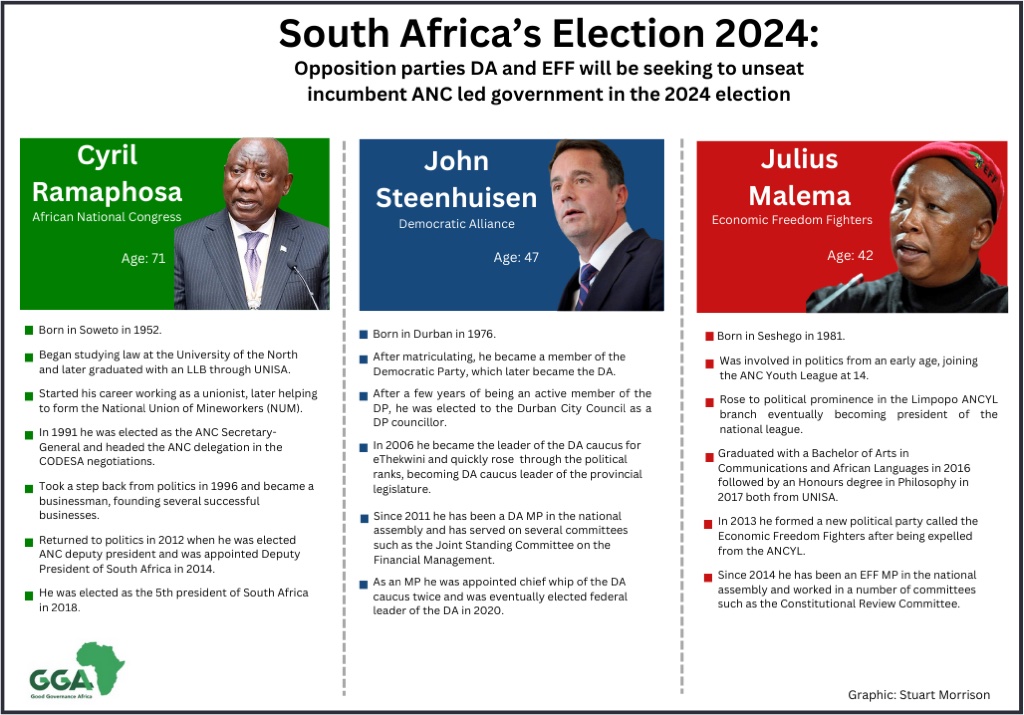
Election day
- The official election day has not yet been announced, although it is still projected to be in May.
- President Ramaphosa is expected to officially announce the election day at the State of the Nation Address, which is expected to be held on Thursday, 8 February 2024.
- Opposition parties have also made calls for the election date to be announced at the SONA, citing that not knowing the official date may negatively impact their planning and campaigning work.
Election campaigns
- On 16 December 2023, former President Jacob Zuma launched a new ANC splinter party, called the MK Party (Umkhonto WeSizwe) which he says he will be campaigning and voting for.
- Following Zuma’s backing of this party, and his announcement of his return to active politics, journalists sent queries to the IEC on his eligibility to stand for public office.
- The IEC has since clarified that, due to his recent imprisonment and according to the constitution, Zuma does not qualify to stand for public office.
- In its response, the IEC explained that it relied on Section 47(e) of South Africa’s Constitution, which prohibits the holding of public office by anyone found guilty and sentenced to more than 12 months in jail without the option of paying a fine.
- However, this disqualification under Section 47 lapses 5 years after the sentence has been completed, suggesting that, should he wish, Zuma may stand for election in the 2029 General elections.
- With the election campaign in full swing across South Africa, several political parties are preparing to launch their manifestos in the coming weeks and months.
- The largest three political parties, ANC, DA and EFF, are set to launch their manifestos after SONA, which is scheduled for 8 February. There have also been growing calls for President Ramaphosa to announce the election date during his SONA.
- The EFF plans to launch its manifesto on the 10th of February 2024, shortly after SONA, while the DA and ANC, are set to launch their manifestos on the 17th and 24th of February 2024, respectively.
- Rise Mzansi, led by Songezo Zibi, and contesting their first general election, launched their manifesto on Saturday, 20th January 2024, in Pretoria. The newly formed political party will be one of more than 200 political parties estimated to be contesting the 2024 election.
- The month of March will be just as active, with several political parties scheduled to launch their manifestos. This includes the IFP which is set to launch theirs on 10 March 2024, and potentially ActionSA, which first entered the South African political space during the 2021 Local Government Elections.
- The Multiparty Charter, which is comprised of several opposition political parties, including the DA, IFP, and ActionSA, held a press briefing in Durban on 24 January 2024 to outline their first collaborative policy position. The briefing focused on issues regarding the economy.
